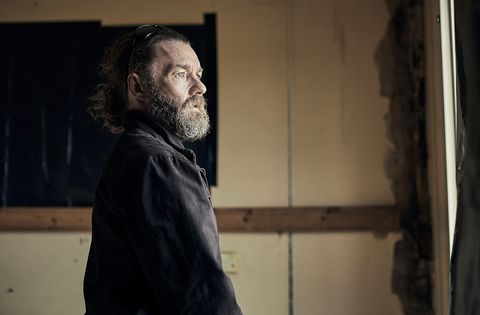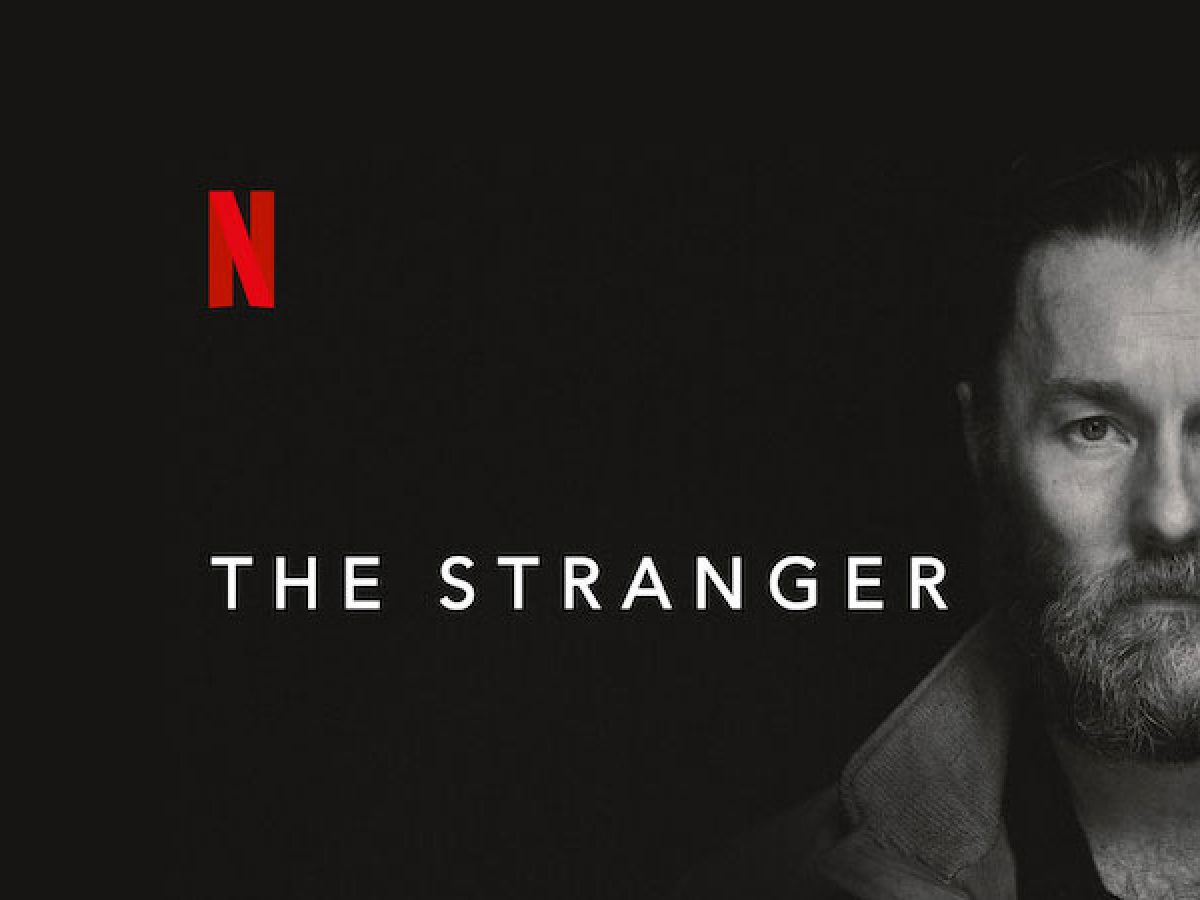Strangers becoming friends on long overnight bus travels is not uncommon, as two people discover while traveling to Western Australia. On the other hand, Paul and Henry stick together the next morning and rapidly become good friends. Paul states he had to flee his native state of Queensland in a hurry and is currently on the road, implying that he is doing something unlawful.
Paul claims Henry is visiting Western Australia for an unexplained reason while Paul is visiting Western Australia. But Henry doesn’t mind because he provides Paul with his address and he allows Paul to buy a used car. Within a short while, Paul tells Henry that he wants Henry to take a position as a trustworthy person who is needed by a guy or group with whom he works.

Henry simply states that he does not want to engage in any violent labor and that anything else would be acceptable because he is aware that a job offered in this manner would almost surely involve something illegal. The following day, a different man than the one they had planned to meet with picks him up and claims to be Mark, a friend of Paul’s.
Mark adds that Paul had some criminal records in the past, for which he needed the help of him and his organization, which specialized in expunging criminal records for anyone willing to work with them. Henry observes Paul obtaining the necessary documents to flee to a secure location and even assists Paul in obtaining them, but Henry is drawn into the offer.
He agrees to work for the organization, transporting drugs, and spends the next few days traveling with Mark, with whom he develops a strong bond. He is unaware that Mark is a police agent working undercover and that the entire police department is putting forth a significant effort to establish his guilt in the kidnapping of a child eight years ago.
What Pressures Does Mark Face While Working Undercover?
In May 2002, James Liston, a little boy, was taken from a bus stop near his house. He was never found, and authorities assumed he was murdered. Since the investigation into the case began, Henry Teague, who was driving a vehicle in the same area when the kidnapping occurred, has stood out as a potential suspect.
In addition to acknowledging his presence, he requested that the police check the neighborhood’s security cameras to determine that he had been parking near the bus stop for some time. The security camera wasn’t working at the time, so the police assumed Henry had seen it, made up his story, and only admitted to being there because he knew he would be captured on camera.
Additionally, Henry had explained his absence, claiming that he had gone to visit an elderly friend at her home. However, this explanation could not be verified because the elderly friend had been moved into an assisted living facility shortly after the visit and did not communicate well.
Even though all of this raised doubts about Henry, the police were never able to substantiate their suspicions and were forced to postpone their investigation and attempt to catch the kidnapper for a long time.
They were unable to impose pressure on Henry since the small child he took eight years ago might still be alive and be the only one who might help the police discover him. The existence of a prior criminal record would significantly bolster the prosecution’s case against Henry.

The police had cause to believe Henry had assaulted a child in the Northern Territories, but there was no evidence of this in any police records. Then it was learned that Henry had changed his identity later in life and had previously gone by the name Peter Morley and that his crime had been reported in the NT under this previous name.
The police realized that they could finally apply pressure on the person now that they had this new information, but they had to exercise caution because there was still no proof that he was guilty. Henry received a call from Kate Rylett, the case’s lead detective, informing him that he had been asked to participate in a Queensland inquiry. Nothing could be used against Henry when he completed the task, and a bus ride back to Washington was scheduled.
In reality, since Paul was a police officer and had been involved in this elaborate operation, Henry had become friends with Paul during this bus ride rather than the other way around. Paul was the one who introduced Henry to the seemingly strong drug-smuggling group that keeps everyone’s past transgressions hidden, and he also functioned as a role model for Henry.
Henry continued to work for the organization, even though his serious and off-putting demeanor might not have been suggested otherwise. The man was pleased about the possibility of having his prior records removed. At this point in the strategy, Mark had entered the fray and accepted the most difficult task—becoming close friends with Henry while keeping a close eye on him.
As part of their responsibilities, Mark drove the potential criminal around and introduced him to the more powerful members of the drug cartel. Although Henry thought they were the true masters, these men and everyone with them were all police officers disguised as smugglers. As a result, Mark grew close to Henry, and the latter even invited Mark over for a drink one evening.
It should be made clear that Henry is not the friendliest person you will ever meet. His demeanor and quiet, serious demeanor gives the impression that he is quite hostile. Even Mark appears surprised when the man invites him to join him for a drink at his home.

This is especially true considering that Henry would always carefully get off some distance from his house in the beginning, perhaps to prevent Mark from learning its precise location. Henry should have been honest with Mark about his background from the start of their relationship so that his group could assist him, but this did not happen. Mark kept reminding Henry of this.
The group is gradually informed of more recent facts about the man, such as the fact that he had changed his name and served two years in prison for assaulting a child in the Northern Territory, and Mark reacts with surprise and rage to each one. It appears that Henry genuinely thought of Mark as a good friend because, throughout all of this, Henry apologizes to Mark for not telling him everything earlier.
Mark, on the other hand, had to deal with the tremendous stress of leading two lives. Every time he walked near Henry, the man would pretend to be someone else while recording every new event and development on a tiny personal voice recorder. When Henry guesses that Mark’s automobile contains audio recording equipment, which it does, he sometimes worries that his cover will be exposed.
One such instance is when this occurs. The stress Mark experiences are typically considerably more internal because he is dealing with a child killer. In Mark’s dreams, Henry frequently takes the form of a brutal psychopath, and the policeman has even had a few hallucinations of Henry in his home. Mark’s situation is made worse by the fact that he has a young son, who is probably seven or eight years old.
He is constantly concerned that Henry might hurt his son, which makes Mark’s situation even worse. Since Mark is not entirely convinced that even the undercover is working against the man, it is clear that he finds it difficult to believe Henry. Additionally, Henry keeps coming into Mark’s fearful imagination as a demonic fiend who delights in harming young people.
Since the success of the police’s plans gradually reveals the true scope of Henry’s crimes, these fears are not without merit. As a final step in the gang’s initiation process, Mark takes Henry to meet with John, the boss who promises to have all of his employees’ pasts erased. In reality, John is also a top police official, and in a private conversation with Henry, he begs the man to confess to all of his crimes so that he can get rid of any evidence connected to them.
Do Henry’s Crimes Be Finally Proven At The End Of “The Stranger”? Ending explanation
Mark and other police officers can listen in on Henry and John’s conversation in a hotel room while they are in another room by using a live audio feed. Henry not only admits to kidnapping the boy but also claims to have choked him to death. He then describes his actions. The man now claims that the police’s previous clues and leads were incorrect. He had seen them on the news.
Despite all of this being documented, the police decide to take advantage of this opportunity further because they still require some type of evidence to support their case. To ensure that no evidence of the crime is ever discovered, John and Mark convince Henry to take them to the precise location where he killed the boy and disposed of his remains.
By accepting this bait, Henry directs them to the scene of the crime, which is in a forested area. In response to this cue, the police rush outside and detain Henry Teague based on his admissions.
Henry won’t be able to escape any longer, thanks to the discovery of some evidence of the murdered boy after a thorough search of the area. Instead of the typical thrills of mainstream entertainment, “The Stranger” focuses on the very real mental stress that an undercover cop must endure.

Mark eventually loses it when he is alone for a variety of reasons ranging from grief over the murdered child to concern for the safety of his son. Mark is well aware that there are people in the world who would murder children and try to escape in any way imaginable because he worked and lived so closely with someone who had committed such a crime.
It is possible to comprehend his tears as being for Henry, who has also opened up to him as a friend, but this is probably not in line with the mood of the rest of the movie. Working closely with a seasoned criminal has left Mark with long-lasting effects that are not always the healthiest—as seen by the fact that he can often be spotted smoking and gazing into the night outside his home—but that will take a long time to mend.


